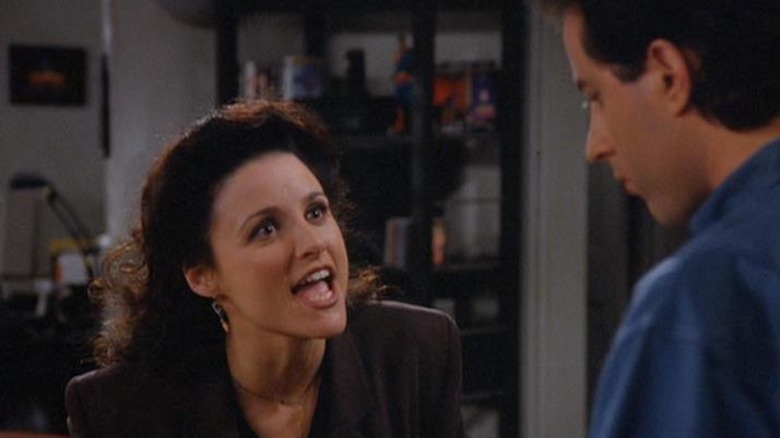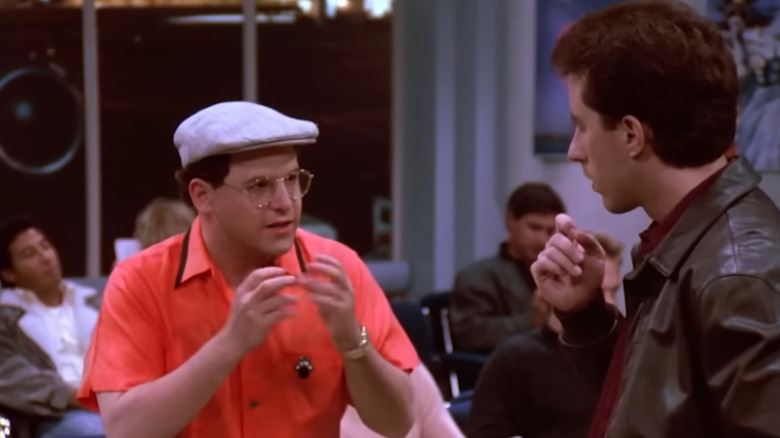NBC Stuck By Seinfeld After Its Disastrous Test Screenings
"It's a show about nothing!" More than 30 years after debuting on NBC in 1989, "Seinfeld" is still one of the most famous and influential sitcoms in network history. This isn't just because of the massive ratings success, heavy syndication, or staggering 68 Emmy nominations either.
Centered on a New York stand-up comedian Jerry (Jerry Seinfeld) and his sardonic, petty friends, "Seinfeld" broke ground for television with its petty, observational humor and selfish lead characters. It also struck a chord with viewing audiences looking for something darker and more intelligent than, say, "Growing Pains."
As a result, the classic 1990s series has ultimately made a serious impact on American culture across multiple generations. Famous Twitter account @Seinfeld2000 heavily parodied it, and "Nothing, Forever" generates a perpetually running episode using AI chat. Like it or not, it's hard to miss the influence of "Seinfeld" on modern humor and discourse.
But did you know that the pilot performed poorly with audiences, and NBC had to stick its neck out to get it syndicated?
NBC execs had to pull some strings to get Seinfeld going
"Seinfeld" eventually became one of NBC's greatest successes, but when it was first developed in 1989, it was titled "The Seinfeld Chronicles." Its future was also uncertain.
During Jerry Seinfeld's 1998 profile on "60 Minutes," the comedian revealed NBC had originally hired him so he wouldn't get his own late-night show and compete against "The Tonight Show." In short, they just wanted to keep him busy.
"The Seinfeld Chronicles" originally aired in July 1989. It was certainly different from the rest of the series, featuring a more confident George (Jason Alexander), Kramer being named "Kessler" (Michael Richards), and Elaine (Julia Louis-Dreyfus) hadn't been cast yet.
The pilot was given "weak" scores by audiences, and Business Insider says NBC execs had to "pull some financial strings to give it a series order." Former NBC entertainment president Warren Littlefield told the outlet, "We loved it. We picked up all this other crap and finally we were running out of options and time and there was a late-night meeting with finance and [then-NBC scheduling executive Preston Beckman]." They ultimately settled on ordering four more episodes, and those didn't air for another year.
Ultimately, it built a cult audience over several years until the ratings soared part of the way through Season 4. The rest is comedy history.

